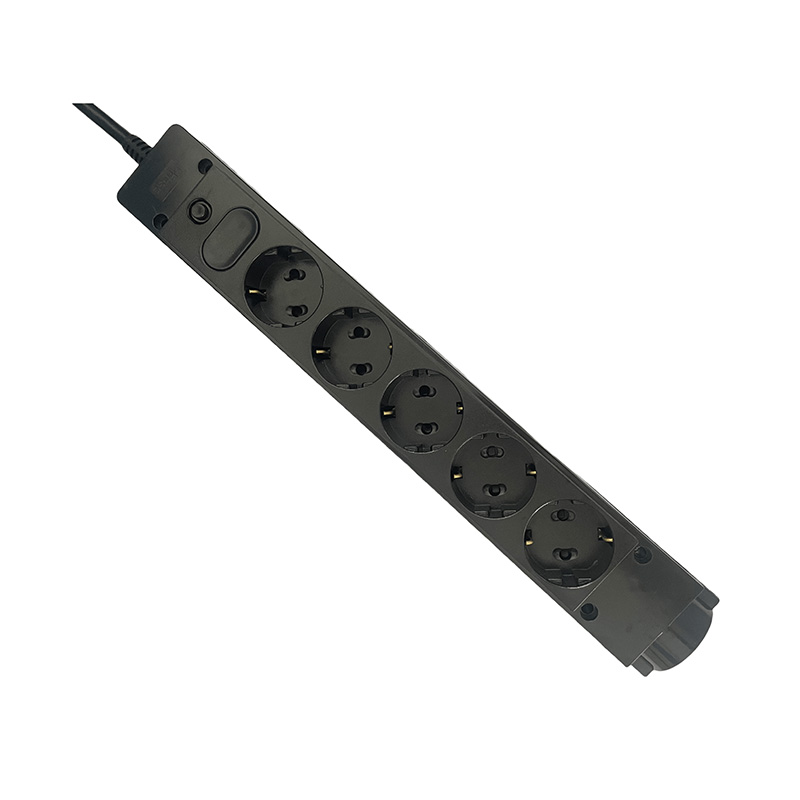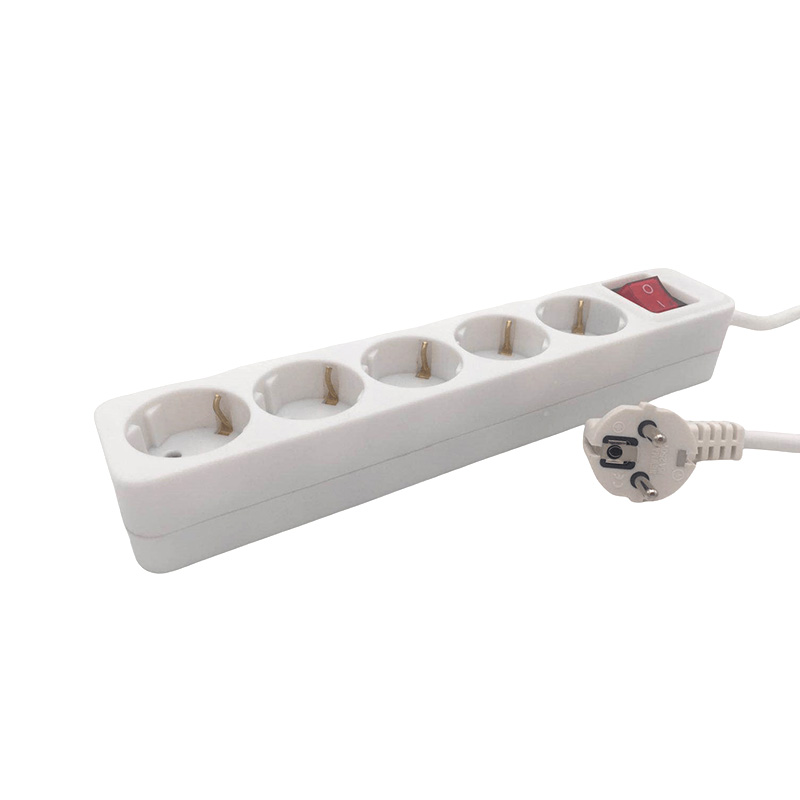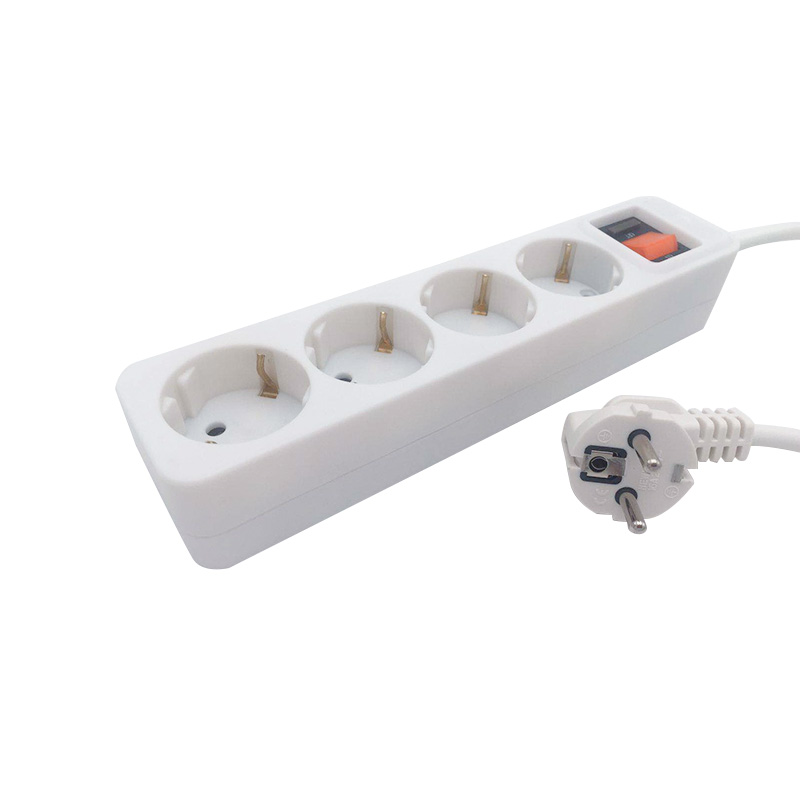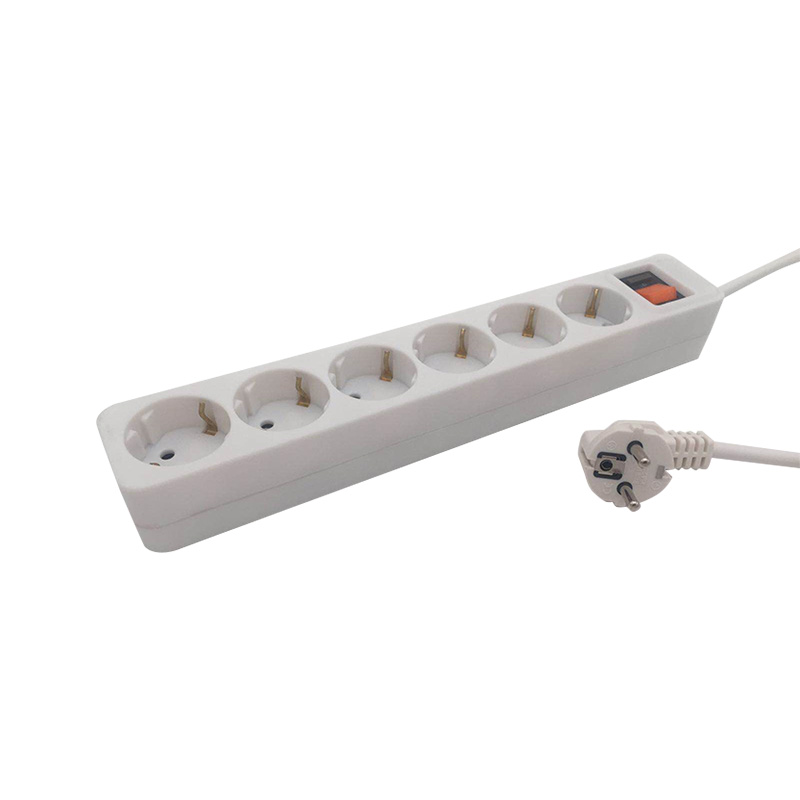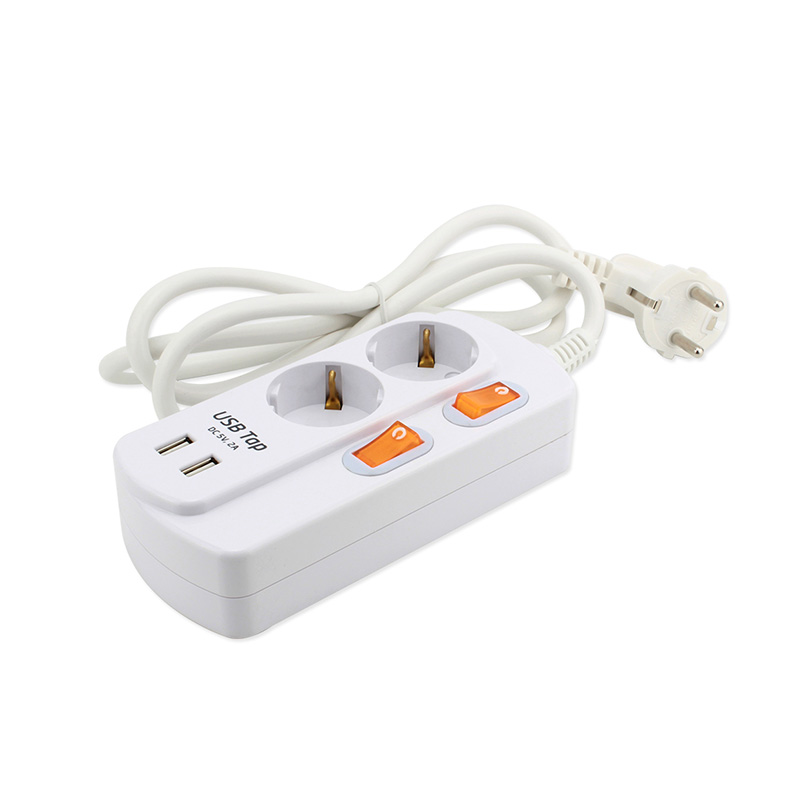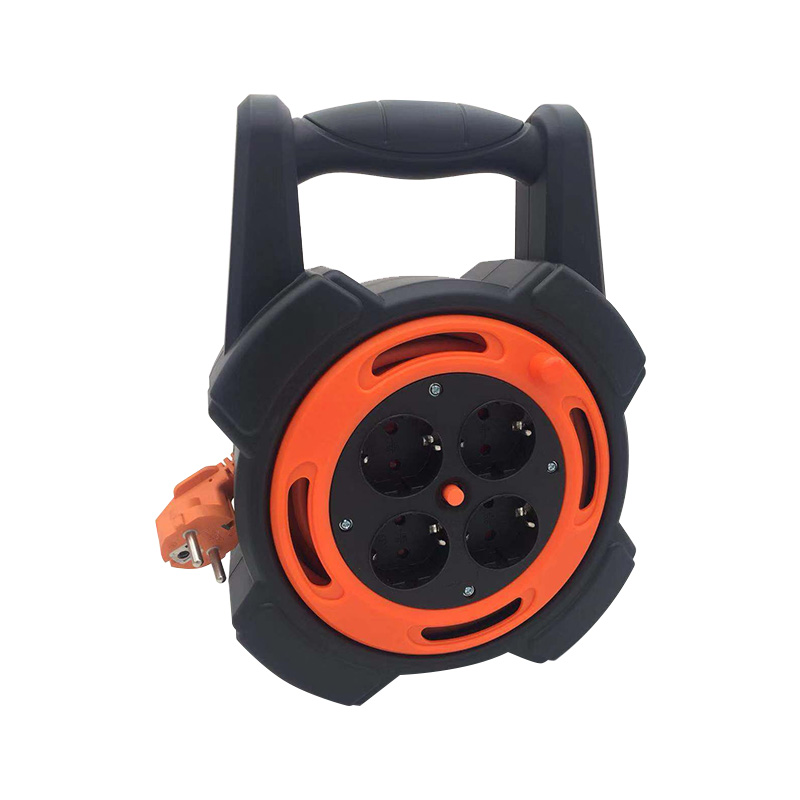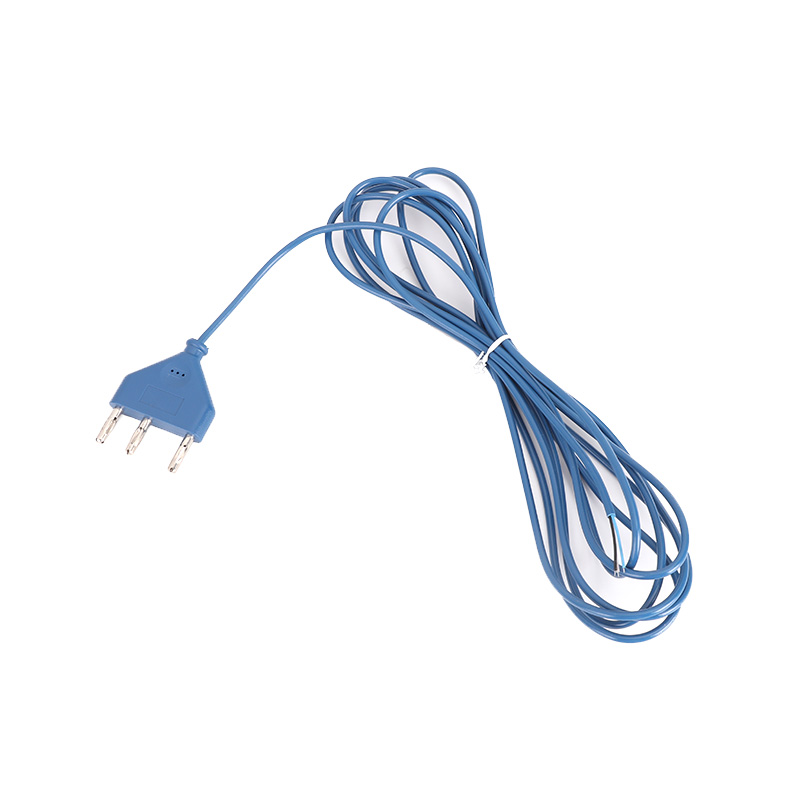Submit feedback
Are polypropene PP power strips really safer?
 2025.06.18
2025.06.18
 Industry News
Industry News
When purchasing power sockets, consumers are increasingly concerned about the safety and environmental friendliness of products. In recent years, power sockets with polypropylene (PP) as the shell material have appeared on the market, claiming to be "safer and more environmentally friendly". So, are polypropene pp power strips really safer than traditional ABS plastic or PC products?
1. Basic characteristics of PP material
Polypropylene (PP) is a common thermoplastic with good heat resistance, chemical corrosion resistance and low water absorption. It is widely used in food packaging, medical devices and automotive parts, and is favored because it is non-toxic, odorless and meets food grade standards.
The main advantages of using PP material in power sockets include:
Higher flame retardancy: Although PP itself is not a self-extinguishing material, its flame retardant performance can reach UL94 V-0 level after adding flame retardants, meeting the basic requirements of electrical equipment for fire safety.
Better high temperature resistance: PP has a higher heat deformation temperature than ABS. When plugging in and unplugging high-power electrical appliances, the PP material is not easy to deform when the surface of the socket is hot.
Environmentally friendly and non-toxic: PP does not contain harmful substances such as bisphenol A, and releases less toxic gases when burning or at high temperatures, which is relatively less harmful to the human body and the environment.
Moderate mechanical strength: Although PP is not as impact-resistant as PC, it has better toughness and can withstand certain external impacts.
2. Comparative analysis with traditional materials
ABS plastic
ABS is one of the commonly used materials for early power sockets. It has low cost and strong processability, but its disadvantages are flammability, poor heat resistance, and easy softening or even melting in high temperature environments, which poses certain safety hazards.
PC material (polycarbonate)
PC material has excellent transparency, high strength and high heat resistance, and is often used in high-end socket products. Its flame retardancy and impact resistance are better than PP, but in some cases it may contain bisphenol A and is more expensive.
Advantage positioning of PP material
PP material has certain advantages in cost-effectiveness and environmental protection. Compared with ABS, it is safer; compared with PC, it is more environmentally friendly, lower cost, and suitable for the mass consumer market.
3. Is PP power socket safer?
From the perspective of material properties, PP power sockets are indeed safer in the following aspects:
Lower fire risk: PP sockets that have been flame-retardant are not easy to catch fire or spread rapidly when short-circuited or overloaded.
Reduce the release of toxic gases: Once a fire occurs, the smoke produced by the combustion of PP is less toxic, which helps people escape.
Better structural stability: During long-term use, PP sockets are not easy to age and deform, and the contact of the sockets is more stable.
However, the overall safety of the socket does not only depend on the shell material, but also involves multiple factors such as the internal conductor material, circuit design, plug-in life, and overload protection mechanism. For example, copper sockets, independent safety doors, overvoltage/overcurrent protection and other functions are the key to determining the intrinsic safety of the socket.
Compared with traditional ABS materials, PP power sockets are indeed safer in terms of flame retardancy, high temperature resistance, and environmental protection. However, it is not comprehensive to judge the safety of the entire socket based solely on the shell material. Consumers should consider comprehensively when choosing:
Whether it has national 3C certification;
Whether the interior is made of high-quality copper;
Whether it is equipped with overload protection function;
Whether the number of plugging and unplugging times meets the standard (the national standard is more than 5,000 times);
Brand reputation and after-sales service.
PP material is an ideal choice for power socket shell, especially for home users who pay attention to environmental protection and basic safety. However, the real "safer" needs to be combined with the overall product design and quality assurance system to achieve.
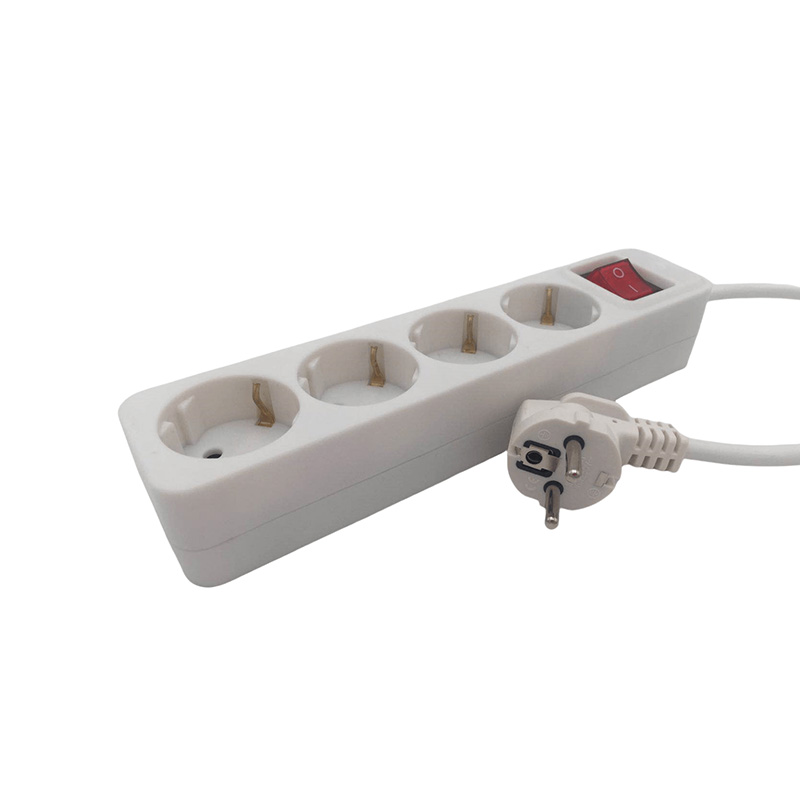
 TOP
TOP
 ENG
ENG
 English
English русский
русский 한국어
한국어 Deutsch
Deutsch

